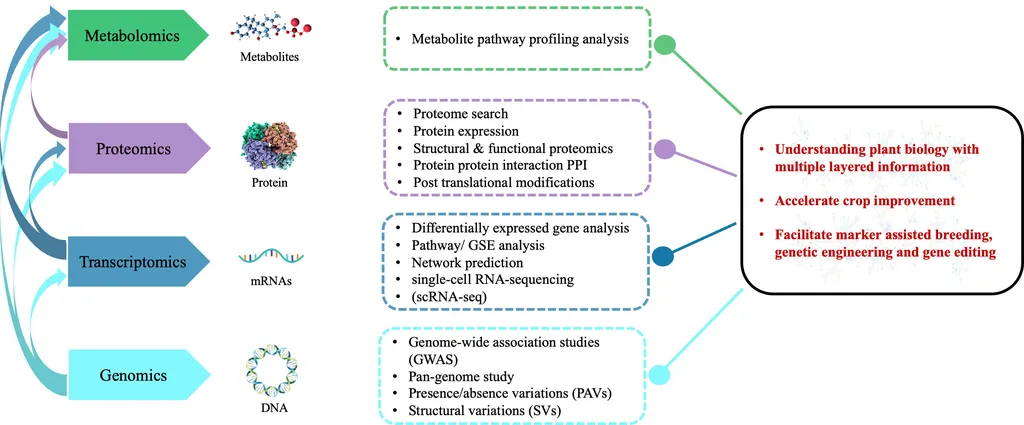In a groundbreaking study published in *Cell Genomics*, researchers have unveiled new insights into the genetic architecture of metabolites and their implications for disease across different populations. The study, led by Chenhao Lin from the State Key Laboratory of Genetic Engineering at Fudan University, sheds light on how genetic variations influence metabolite levels and, consequently, disease risks, offering promising avenues for precision medicine and agricultural biotechnology.
The research team conducted large-scale genome-wide association studies (GWAS) on 171 directly quantifiable metabolites using nuclear magnetic resonance (NMR) metabolomics data from 10,792 Han Chinese individuals. They identified 15 significant variant-metabolite associations, eight of which were successfully replicated in an independent Chinese cohort of 4,480 individuals. By integrating data from 213,397 European individuals from the UK Biobank, the researchers performed a cross-ancestry meta-analysis, uncovering an additional 228 variant-metabolite associations. This cross-ancestry approach not only enhanced the precision of fine-mapping but also provided a more comprehensive understanding of the genetic determinants of metabolites.
One of the most compelling findings from the study is the evidence suggesting that genetically predicted levels of triglycerides in high-density lipoprotein (HDL) are associated with an increased risk of coronary artery disease, while higher levels of glycine are linked to a lower risk of heart failure. These associations were consistent across both Chinese and European populations, highlighting the shared genetic architecture underlying metabolite variations and their roles in complex diseases.
“Our study underscores the importance of cross-ancestry genetic studies in unraveling the complexities of metabolite regulation and disease susceptibility,” said Chenhao Lin, the lead author of the study. “By leveraging data from diverse populations, we can gain a more nuanced understanding of the genetic factors that influence health and disease, paving the way for more personalized and effective interventions.”
The implications of this research extend beyond human health into the agriculture sector. Understanding the genetic determinants of metabolites can lead to the development of crops with enhanced nutritional profiles, improved disease resistance, and greater yield potential. For instance, identifying genetic variations that influence metabolite levels in plants could enable breeders to select for traits that enhance crop quality and resilience, ultimately benefiting farmers and consumers alike.
Moreover, the study’s findings could inform the development of targeted agricultural biotechnologies, such as genetically engineered crops designed to produce specific metabolites that confer health benefits or improve environmental sustainability. By harnessing the power of genomics and metabolomics, the agriculture industry can make significant strides toward more efficient and sustainable food production systems.
As the field of agritech continues to evolve, the integration of cross-ancestry genetic studies and advanced metabolomics techniques holds immense promise for driving innovation and improving outcomes across multiple sectors. The research published in *Cell Genomics* represents a significant step forward in our understanding of the genetic architecture of metabolites and their implications for health and agriculture, setting the stage for future breakthroughs in precision medicine and agricultural biotechnology.

